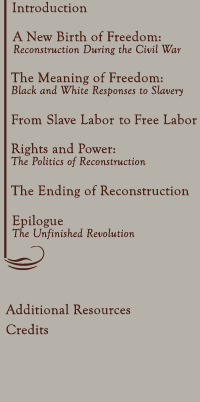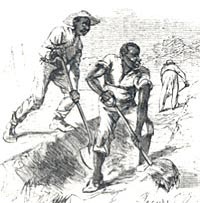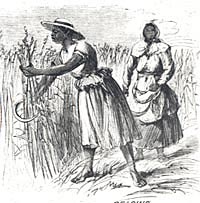








The Planter's Domain
The system of sharecropping, in which individual families rented portions of a plantation, arose in large measure as a compromise between planters' desire for a disciplined labor force, and blacks' insistence on controlling their own day-to-day labor.

![]()

Many planters were devastated economically by the Civil War. The loss of capital invested in slaves, and life savings that had been patriotically invested in Confederate bonds, reduced many to poverty. Some were compelled, for the first time in their lives, to do physical labor. Those who managed to resume production believed it would be next to impossible to prosper using free black labor.
It was widely
believed that African-Americans would work only when coerced. Charges
of "indolence" were directed not against blacks unwilling to
work at all, but at those who preferred to work for themselves rather
than signing contracts with planters.
Many landowners
wrote into labor contracts detailed provisions requiring freedpeople to
labor in gangs as under slavery, and obey their employers' every command.
But contracts could not create a submissive labor force; because of the
labor shortage, dissatisfied freedpeople could always find employment
elsewhere.
Copyright
2003